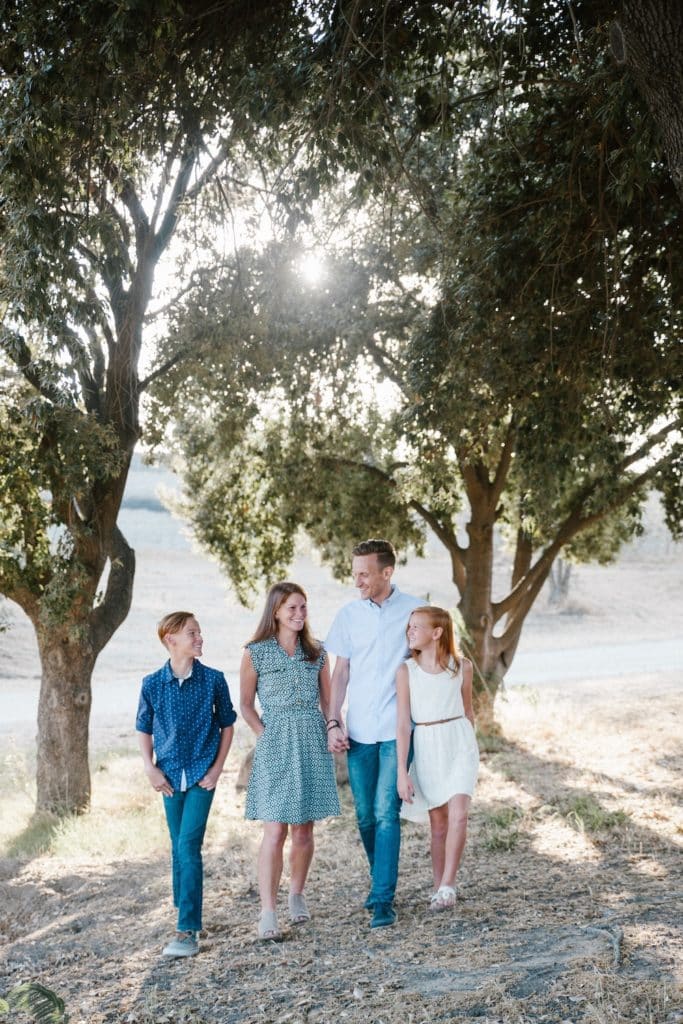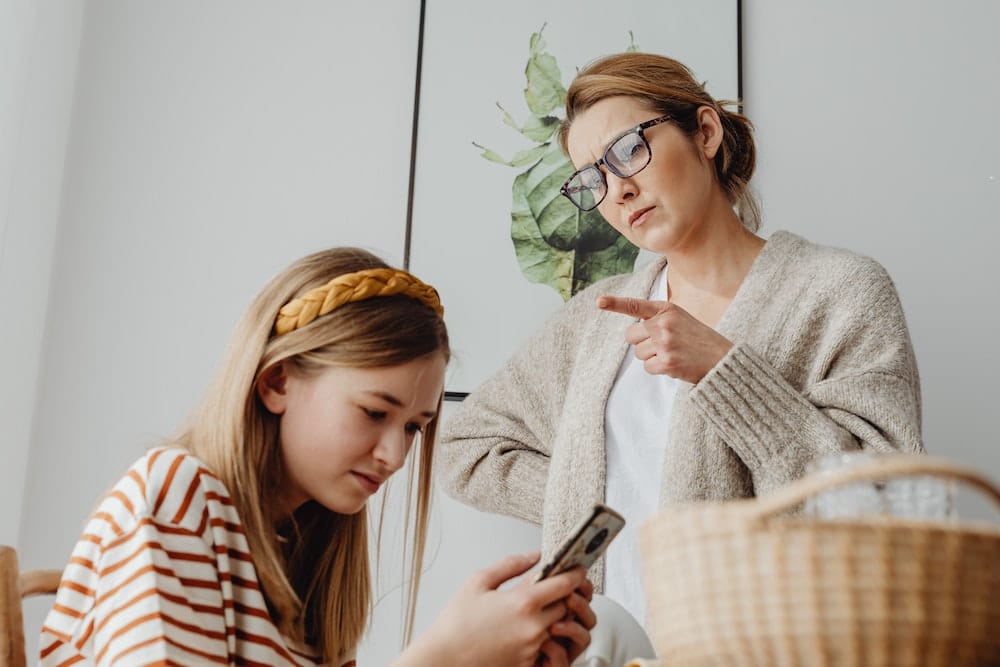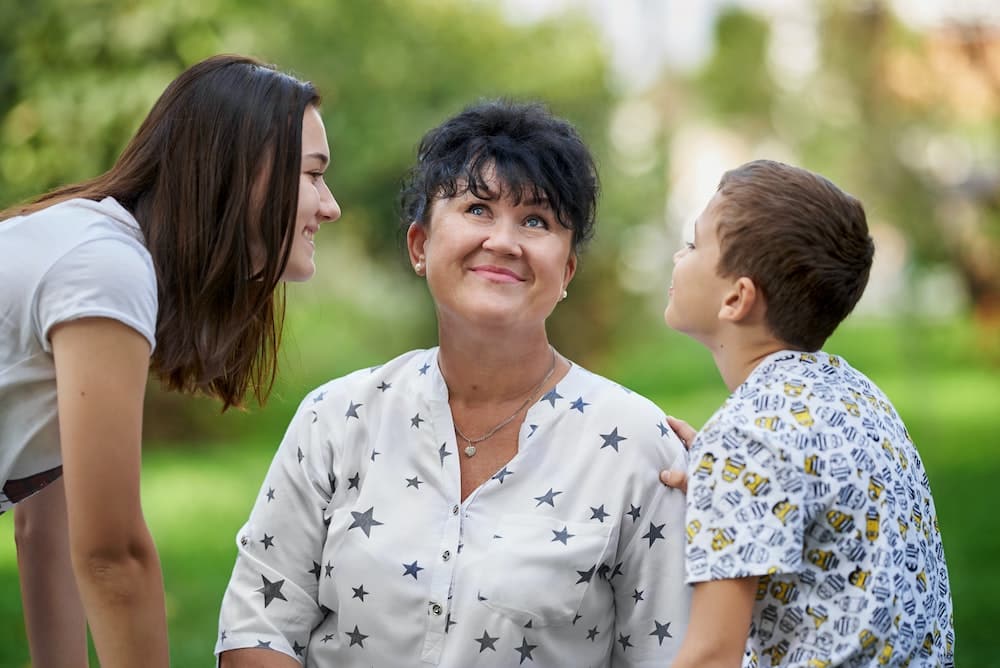Do your children need to know about your menopause?
In days gone by when menopause was swept under the carpet, you’d probably answer no.
But lucky for us, we live in more enlightened and inclusive times so it’s more likely to be ‘yes, absolutely’!
Just like puberty and pregnancy, menopause is normal and perimenopause (the time of most symptoms) is temporary. Furthermore, in a very short time – 2025 – it’s estimated there will be one (1) billion women on the planet at this life stage! So it’s important for your children to be aware of that.
It’s also helpful for them to know that mum is not losing her marbles or turning into a bad-tempered witch. NB: there’s a host of search queries on places like Quora i.e. “why is my mum always grumpy?” and “my mum is always angry at me”. Make you stop and think doesn’t it?!
Additionally, by being open and honest you’re weakening the power of the misinformation that’s rife in the world due to the historical stigma of menopause.

Does the age of your children impact whether they need to know about your menopause?
It may affect what you share and how you say it. And because some women are having children later in life, perimenopause or the lead up to menopause may begin (early to mid-40s or even late 30s) when your children are still quite young.
Or, if you had your children in your 20s/30s they may be experiencing their own hormonal rollercoaster with puberty raising its head. Then again, your children may be adults and even starting their own families.
And if you’re experiencing early menopause or medically induced menopause your children may still be toddlers.
Therefore, when it comes to parenting and menopause there are a host of different scenarios to consider when considering whether your children need to know about your menopause.
So if your children are – say – 7 or 15, you’ll probably mind your words. Of course, how you choose to address it is individual but light and uncomplicated tends to be the general advice.
Read: 13 Things I Wish I’d Known When I Started Perimenopause
Did you know?
Statistics around the world show women are having their first child at an increasingly older age. For example, in New Zealand in 2018 the highest number of first-time mothers were aged 30-34.1 In a similar fashion in Australia, the highest proportion of mothers were aged between 30-34 in 20202.
Do your toddlers need to know about your menopause?

It can be difficult juggling young children, especially babies and toddlers with perimenopause but it can and does happen. They may not be sleeping well so are cranky and that doesn’t stop them from running around full of energy.
By the same token, you may be sleep deprived not only because of young children waking you but because of hormonal sleep deprivation or night sweats. In addition, you could be experiencing menopause headaches, fatigue, hot flushes, or aching joints.
Do they need to know about your menopause? Yes. Because while it may be difficult for them to understand, it’s reassuring to let them know it’s not them, it’s you. Besides, children are intuitive and may sense something is wrong.
Read: The 34 Symptoms Of Perimenopause
Do your teenagers need to know about your menopause?

Parenting teenagers is well known for its challenges. Throw the double whammy of puberty and menopause into the mix and you’ve got huge potential for some wearying battles. Indeed, menopause is often referred to as second puberty and both are infamous for mood swings, tears and…dare we say it…tantrums. (Albeit they may present differently!)
So your home can become a hotbed of rising (theirs) and declining (yours) hormonal havoc. Not surprisingly, it can cause many male husbands/fathers/male partners to feel a little overwhelmed so communicating with them is vital too.
But in terms of being the parent, it’s a resounding yes that everyone involved – be they adolescent sons or daughters – learn what’s going on with you. Both puberty and menopause aren’t just about the physical – emotional and mental health issues can raise their heads too. So by being honest and open about things like depression and anxiety you could create a support system and bring the entire family together.
Read: 12 Common Signs Of Depression & Anxiety
Communication Is Queen in telling your children about your menopause
With communication rating very highly in all avenues of life in the 21st century, we’re willing to bet you’ll choose to explain what you’re experiencing to your children. (And let’s not forget stepchildren too).
Granted, it might be difficult to talk about your menopause because it’s quite a personal experience. But it can be enlightening and it offers a fantastic opportunity to blast through old taboos thereby paving the way for the next generation.
Indeed, menopause should not be about not shrouding a normal life transition in secrecy (just as you don’t want your children to hide their adolescent struggles away). It’s important to shed light and spread understanding.
Heck, you may even empower your teenager to share with you challenges they may have been reluctant to talk about. Therefore, it could be a time of bonding because each of you is going through similar challenges.
6 simple guidelines for sharing:
1. Try Transparency
Especially if you’re battling with fatigue, mood swings, rage and ALL THE THINGS!

Consider talking about what you’re experiencing as a family. “This is happening to mum, she might scream at you for no reason or forget to pick you up or…(fill in the blank). How do you feel about that? How are you feeling?”
2. KISS (Keep It Simple)
If your children are younger maybe mention that your body isn’t feeling so good and sometimes it makes you cross. Back it up with the intel that there’s no need for them to worry. And if your kids are in puberty perhaps reference the fact that like them, you’re going through some hormonal changes too.
Try not to overcomplicate things. Make it straightforward – perhaps give some reading material or links to older children if they want to know more.
3. Offer some ways to help
Sometimes the kids want to help you so make a list of things they could do.
These could include putting their toys away, helping with the dishes or the cooking, not throwing tanty’s! Or just giving you a cuddle.
You can even ask them to let them know if you’re acting out. It’s a bit of a tricky one but it could be helpful because oftentimes we don’t realise we’re being a witchy-poo.
4. Assure them

Above all, let them know you’re OK and that this too shall pass. It might be confusing for children who look at you as their rock, support system, Queen-of-all-things. So tell them you still love them madly but you’re just not feeling well right now.
5. Use vitamin H
Humour can play a pivotal role and diffuse the situation and it makes everyone feel so much better. And if you don’t feel very ‘laughy’ right now fake it. Or try laughter yoga. (We found this feel-good video and had to share, you’re welcome!)
Laughter decreases stress hormone levels and increases feel-good factors like endorphins.
Read: Laughter Is The Best Medicine
6. Self-care is everything

Menopause is a time when it’s very important to focus on self-care and me-time. In fact, it’s important for everyone around you. But as a mother, you could feel it’s selfish. It may be useful to use the ‘putting your oxygen mask on first’ analogy here. You need to look after yourself.
It’s interesting that peri/menopause can come at a time when our maternal instincts may be waning. Of course, you’ll always love your children but biologically speaking declining estrogen and oxytocin shift your priorities. Dr Louann Brizendine, author of The Female Brain explains that “we’re less inclined to be as attentive to others’ personal needs” and our “mommy brains tend to unplug”. (She also says that women in their 50s are far more likely to initiate divorce but that’s a whole other story!)
Conclusion
Perimenopause and menopause don’t only affect you, they’re a life transition that impacts everyone around you. Including your family and children. And whether your children are young, adolescents, or adults it’s helpful to share with them what you’re experiencing.
The truth is being open and honest with those closest to you is often respected and appreciated.
Asking for support and explaining what’s happening to you (as far as you know!) can help diffuse what could be an otherwise fraught situation. And remember, humour helps. 💙

The MenoMe® Library

We invite you to seek out the ‘Learn’ section on our website. It’s full of credible information that will keep you informed, learn what lifestyle practices you can initiate to improve challenging signs and symptoms and you can share it with those you love.
We recommend a multi-pronged approach to experiencing your best natural menopause journey. Nutrition and hydration play a huge role along with movement, community, humour and appropriate supplementation among other things.
Share with a friend
Sign up to our mailing list for the latest news and stories and receive a $5 discount code to redeem on your first purchase, plus receive a 3-step eBook on ways to support your body through menopause.
This site is protected by reCAPTCHA and the Google Privacy Policy and Terms of Service apply.
Related Articles
References:
- govt.nz/reports/parenting-and-fertility-trends-in-new-zealand-2018
- gov.au/reports/mothers-babies/australias-mothers-babies-data-visualisations/contents/demographics-of-mothers-babies/maternal-age/










